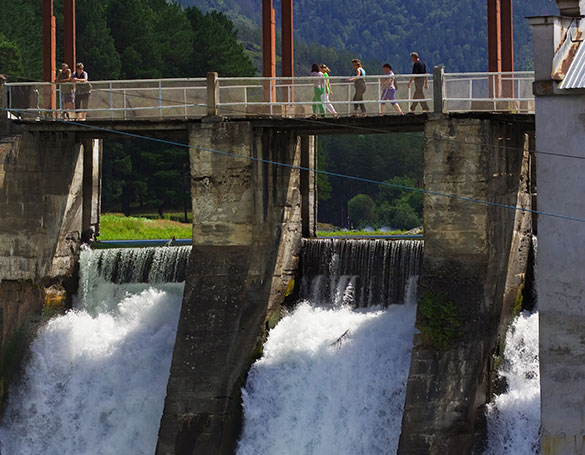Sri Lanka’s privately owned hydro power sector risks an imminent shutdown with virtually all cash-flows drying up as a result of Ceylon Electricity Board’s failure to honour payments to the tune of Rs.20 billion to hydro power developers over the past 11-month period.
“The total outstanding for the mini hydro sector since October 2021 is over Rs.20 billion and already one plant with 0.9 MW capacity has been forced to shut down due to cash-flow issues,” Sri Lanka’s Small Hydro Power Developers Association (SHPDA) President Thusitha Peiris said.
He was addressing the association’s 15th Annual General Meeting (AGM) last Friday.
Sri Lanka’s power sector regulator, Public Utilities Commission, had imposed a condition to CEB to settle the payment arrears to renewable energy developers within a 03-month period when granting approval to increase electricity tariffs.
Although, CEB had reached an agreement with mini hydro developers to settle Rs.100 million on a daily basis, Peiris noted that CEB is yet to honour this arrangement.
In this backdrop, hydro power developers are faced with a severe financial strain in sustaining their operation as they are struggling to settle their project loans to banks while meeting operational costs.
Around Rs.30 billion worth loans by the sector have been classified as non-performing by banks due to non-payment over the past few months. As a result of this, Peiris pointed out that much of the developers have lost access to working capital through the banking sector.
“Our industry has never gone through such a crisis before. The main problem is sourcing working capital,” he said.
The association highlighted that CEB’s failure to honour its payments on time to renewable energy developers has created a dark cloud on future investments in the renewable energy sector.In addition, the developers are also impacted by the current high interest rate regime.
While welcoming the government’s decision to revise the feed-in-tariff (FIT) for renewable energy projects through a committee, the association requested the government to increase the current tariff rate for over 15 mini hydro plants in operation in line with the existing financial parameters.
With an installed capacity of 440MW, private-sector owned small and medium hydro power plants play a crucial role as one of the most reliable and cheapest power suppliers to the CEB.
